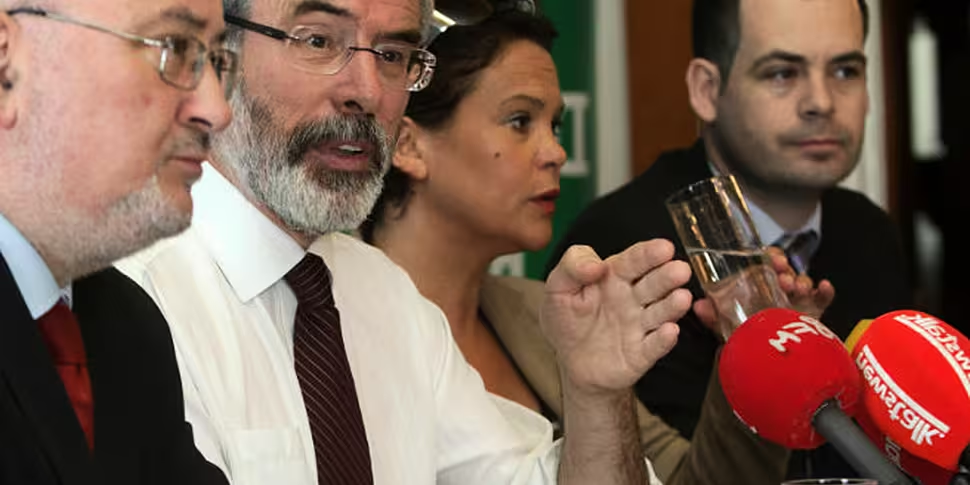Updated: 14.05
There are just 3 empty seats remaining as counting continues in the Northern Ireland Assembly Election.
The DUP's Arlene Foster is on course to return as First Minister, as her party is in the lead with 38 seats.
However, it's thought the main parties could end up with the same number of Assembly members as before Thursday's vote.
Sinn Fein currently has 26 seats.
The Ulster Unionist Party has 15, while the SDLP has 12 of the 108 seats.
Democratic Unionist Party leader Arlene Foster said on Friday evening that she is expecting to be returned as Northern Ireland's First Minister, as the DUP leader topped the poll in Fermanagh and South Tyrone.
She said: "I feel great, it is a great endorsement of our campaign and I am absolutely delighted."
Counting in the Northern Ireland Assembly elections, expected to finish later today, takes longer than elsewhere because of the country's voting system.
Sky News Ireland Correspondent David Blevins said: "Northern Ireland uses the Single Transferable Vote system - a form of Proportional Representation - to elect members of the Assembly. Voters rank candidates in order of preference by marking 1, 2, 3, etc. next to names on a ballot paper. Each candidate needs a minimum number of votes to be elected - the 'quota'. If a candidate is eliminated or has more votes than are needed to fill the quota, their surplus votes are transferred to the remaining candidates, hence the long process."
In all, 703,744 people voted in the election, representing a turnout of 54.91%, slightly from the 55.64% turnout in the 2011 assembly election.
The poll was the first chance to vote for people born after the historic Good Friday Agreement in 1998, which paved the way for a devolved power-sharing government.









